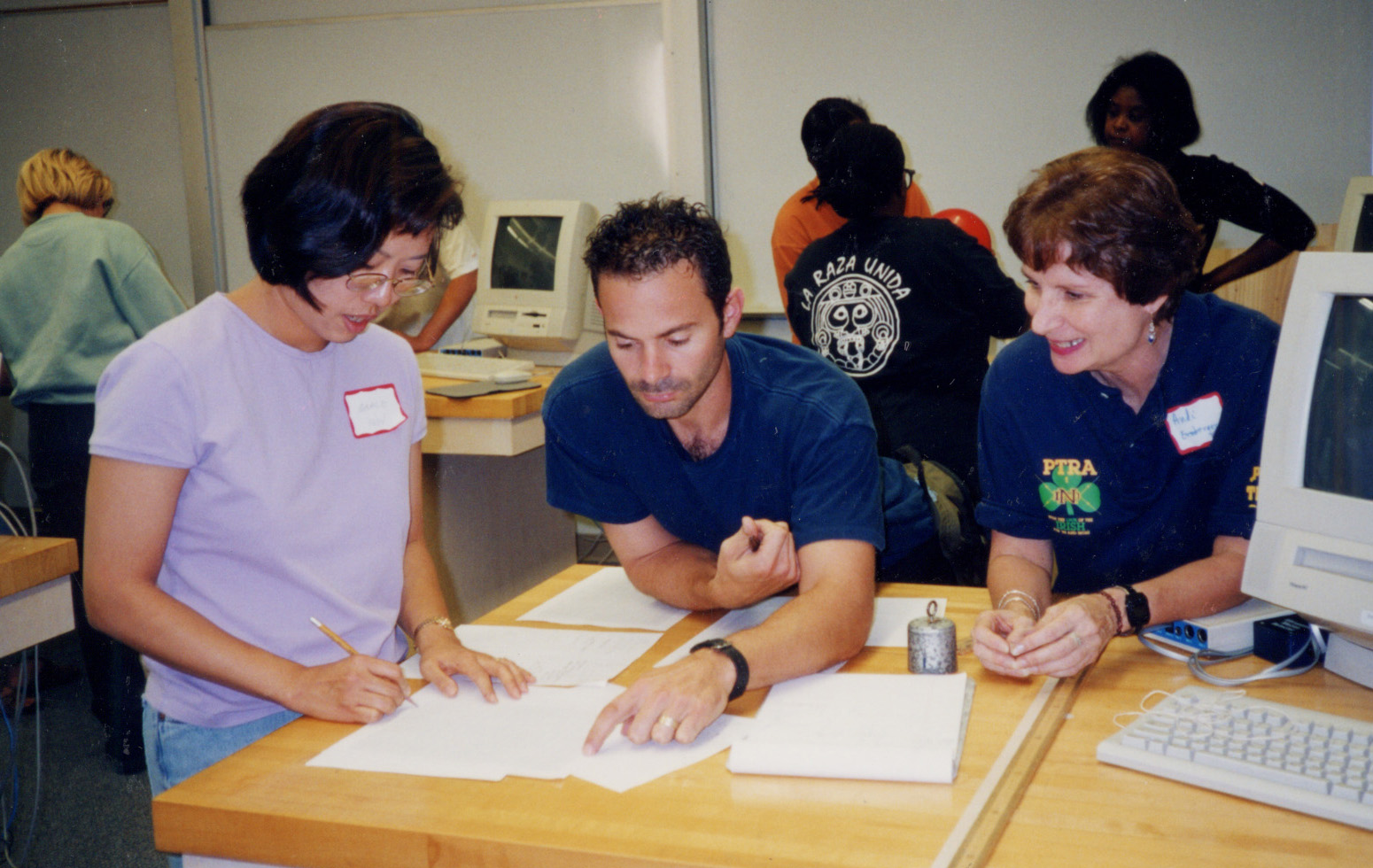PSRC (Physical Science Resource Center).
Lists of demos, software, curriculum, etc. By American Association of Physics Teachers.
AAPT (American Association of Physics Teachers).
Organization of high school and college teachers. Has lists of meetings, workshops (under Programs, PTRA), links.
List of newsgroups, e-mails, listservs.
List of discussion groups. By U. Washington.
SAS FORUM. Society for Amateur Science WebX BBS forum, a huge site to browse.
HVA Board High Voltage Forum run by the
High Voltage Assoc.
SCIENCEHELP forum, phys/chem/bio w/NASA consultants.
Science Talk
For kids, parents, teachers, provided by NPR Science Friday Kids Connection.
Science Connection,
a meeting place for science teachers.
Science Mentors. Q and A Discussion area for NPR's "Sounds Like Science" radio show.
News Groups
What are "Newsgroups?" (from Dejanews)
Dejanews. Best source for all newsgroups.
Directory of Sci. Newsgroups (at dejanews)
Directory of K-12 Newsgroups (at dejanews)
SCI.PHYSICS. Search by topic.
ListServ
What are Lists?
SCICLUB-LIST
Discussion list for amateur science on Science Hobbist site. You may subscribe or use the archives.
PHYS-L Discussion list for physics teachers. It has an archive also.
TAP-L Discussion list about physics teaching apparatus.
PHYSHARE A list for high school physics teachers.
ELECTRON Discussion list for electronics teachers.
CUPLE (Comprehensive Unified Physics Learning Environment).
Armchair-Science Forum for "Armchair Scientist" web magazine.
PHYS-L is a list serve of 650 physics educators.
SCHOOLSCIENCE. Science teaching news. (moderated list)
PHYSHARE. Sharing resources for high school physics.
NTWFORUM (New Technologies in Physics Education).
PHYSLRNR, (Physics Learning Research List).
info-holo, the holograpy list for the
SPIE, The International Society for Optical Engineering.
MINI-AIR, Annals of Improbable Research distribution list. (They run the "Ig-nobel" prize awards).
listserv. Lists global physics.
Research in Physics Education
Curricula based on educational research.
APS Education and Outreach.
Comprehensive
list of physics education journals, discussion groups, projects.
By U. Washington.
Physics education curriculum and pedagogical projects.
Brief description and link to each.
National Academy Press. Many books on science and teaching.
ERIC database.
Collection of journal articles on educational research.
PEN (Physics Education News). Summaries of resources, physics education.
Free subscription.
National Science Standards. Plus database and activities.
Project 2061, an education reform report by AAAS.
TIMSS (The Third International Mathematics and Science Study)
studied achievement and curricula in math and science in many countries.
TIMSS in U.S. More information and links.
ESTEEM (Education in Science, Technology, Energy, Engineering, and Math).
Links by Sandia Lab, Dept. of Energy.
Eisenhower Nat'l. Clearing House for Mathematics and Science Education.
Collection of resources.
AAAS Science NetLinks Searches. Reviewed web sites and lessons for K-12.
Force Concept Inventory Test.
Then go to Evaluation Instruments, then to Conceptual Learning
Assessments, then you will find Force Concept Inventory / Modelling.
Click on Modelling. Then you will find FCI. Open with Stuffit.
Trends in High School and 2-Year College physics, by AIP.
Diagnoser. To understand student's reasoning in physics.
By U. Washington. (Mac only)
Institute for Inquiry. Activities and resources about inquiry,
by the Exploratorium.
Knowledge, Integration, Environment (KIE).
Using the web in inquiry-based learning in science
for middle and high school. UC Berkeley.
Constructivism.
Description of philosophy and links to other examples in physics.
Naive Conceptions List.
Extensive list of students' misconceptions, by topics. By AIP Operation Physics Project.
Misconceptions, including some in textbooks.
Bad Science. Collection of misconceptions in teaching and in textbooks.
Misconceptions. Some resources about misconceptions.
Marilyn is Wrong! Errors and misconceptions in the popular "Marilyn von Savant" column.
Science Myths. Misconceptions about science by students and in
textbooks.
Bad Astronomy. Misconceptions about astronomy by students and the media.
| 
